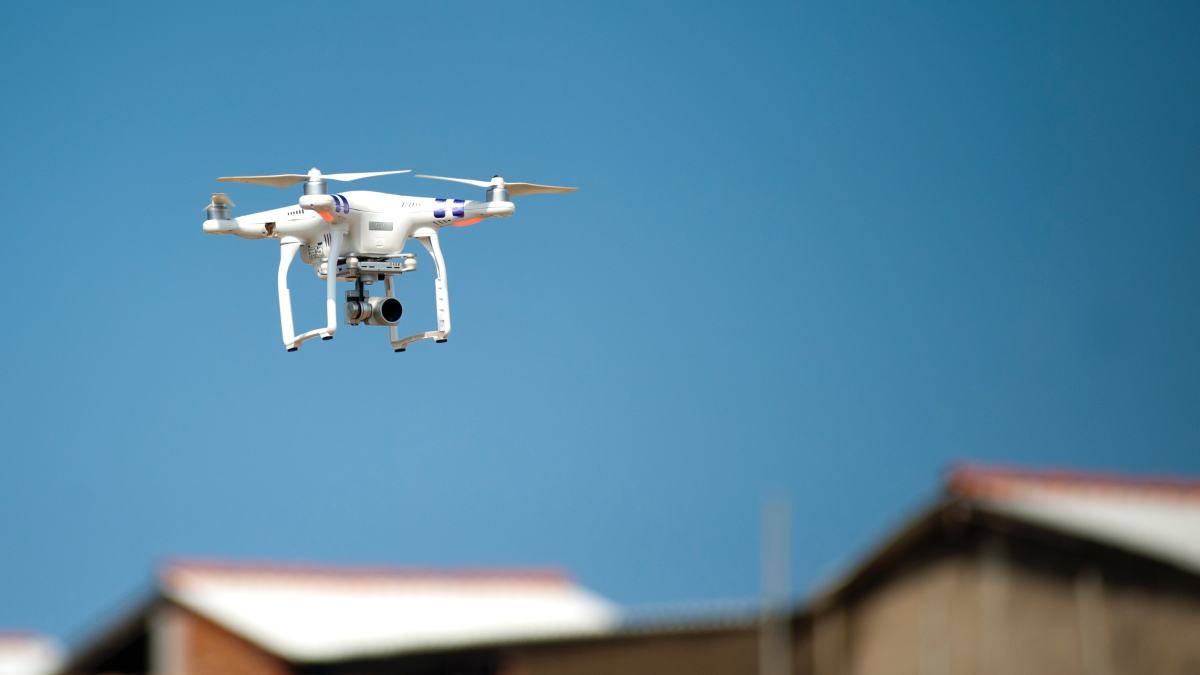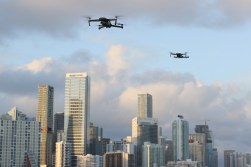Department of Interior grounding drone fleet over cybersecurity concerns

The secretary of the Interior issued an order Wednesday grounding all of the Department of the Interior’s non-emergency drones so the agency can assess potential cybersecurity concerns before operating the devices any further.
“Drones for non-emergency operations will remain grounded while the Interior Department reviews the possibility of potential threats and ensures a secure, reliable and consistent drone policy that advances our mission while keeping America safe,” a Department of Interior (DOI) spokesperson said.
The order, which will be temporary, “is intended to better ensure the cybersecurity and supply of American technology of unmanned aircraft systems,” according to the order. Part of the DOI’s concern is that information on American energy, transportation, and defense infrastructure collected by DOI drones “has the potential to be valuable to foreign entities, organizations, and governments,” the order says.
While DOI grounded a fleet of approximately 800 Chinese-made drones last October, this order is intended to formalize and expand that grounding, a senior Interior official told reporters on a call Wednesday.
The order comes amid a spate of warnings and bans at multiple government agencies, including the Department of Defense, about possible vulnerabilities in Chinese-made drone systems that could be allowing Beijing to conduct espionage. The Army banned the use of Chinese-made DJI drones three years ago following warnings from the Navy about “highly vulnerable” drone systems.
One memo drafted by the Navy & Marine Corps Small Tactical Unmanned Aircraft Systems Program Manager has warned “images, video and flight records could be uploaded to unsecured servers in other countries via live streaming.” The Navy has also warned adversaries may view video and metadata from drone systems even though the air vehicle is encrypted. The Department of Homeland Security previously warned the private sector their data may be pilfered off if they use commercial drone systems made in China.
Most recently, President Donald Trump signed off last month on barring the U.S. military from purchasing Chinese-made drones in the 2020 National Defense Authorization Act.
According to documents obtained by CyberScoop, Idaho National Laboratory recommended in October that other assessments of drones be undertaken, including supply chain verification and high-level software, firmware, and hardware reverse-engineering.
Congress has recently taken interest in drone security as well — a group of Republican senators asked the Department of Transportation and the Federal Aviation Administration to exclude Chinese drones from future partnerships.
Not just Chinese concerns
Although much of the U.S. government’s concerns about possible vulnerabilities in drone systems has been focused on concerns about Chinese espionage, the order does not call out China by name because the department wants to fully examine whether there are threats from other countries.
“There is an emphasis on Chinese-made drones without questions” one senior DOI official said. “But it does not specifically mention Chinese [drones] because we wanted to leave it open in case there are additional foreign-made sources that may be issues.”
The DOI is now working with U.S. intelligence agencies to conduct the review, a senior Interior official said Wednesday.
The DOI declined to specify which agencies are participating in the review, but confirmed Interior Secretary David Bernhardt had received classified briefings on the matter.
DJI Drones accused the DOI of issuing the order as “part of a politically-motivated agenda to reduce market competition and support domestically produced drone technology, regardless of its merits” in a statement Wednesday.
In the meantime, the department will continue to allow drones to operate in emergencies, such as in cases of search and rescue, wildfires, or other natural disasters.






